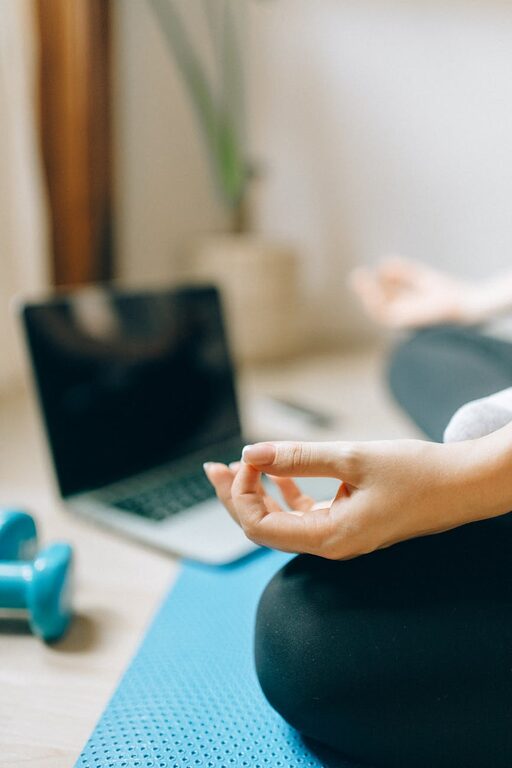
In today’s connected world, smartphones have become an essential part of our daily lives. They help us stay in touch, access information, and entertain ourselves. However, excessive or mindless phone use can lead to stress, reduced productivity, and even physical discomfort. Developing healthy phone habits is a positive step toward improving your overall well-being. In this post, we’ll explore how to maintain balanced phone use through simple and effective strategies.
Why Healthy Phone Habits Matter
Before diving into tips, it’s important to understand why managing phone use is beneficial:
– Improved Mental Well-Being: Reducing constant notifications and screen time can lower anxiety and promote mindfulness.
– Better Sleep: Avoiding phones before bedtime helps improve sleep quality by reducing blue light exposure.
– Enhanced Productivity: Limiting distractions supports focus on work, study, or hobbies.
– Physical Health: Managing posture and reducing eye strain prevents discomfort and long-term issues.
Now, let’s look at practical ways to develop these habits.
Set Boundaries for Phone Use
Establish Phone-Free Zones and Times
One of the most effective ways to control phone use is to designate areas and periods during the day when phones are put away.
– At Meal Times: Encourage family or personal meals without phones to foster connection and mindfulness.
– Before Bed: Create a wind-down routine that excludes screen use for at least 30 minutes.
– In the Bedroom: Avoid bringing phones to bed to reduce temptation and distractions during sleep.
Schedule Phone Breaks
Instead of checking your phone continuously, try setting specific times to look at messages or social media.
– Use timers or reminders to check your phone only every hour or two.
– Gradually increase intervals between phone checks to build self-control.
Customize Notifications
Constant alerts can contribute to distraction and stress. Managing notification settings helps you stay focused.
– Prioritize Alerts: Enable notifications only for essential apps like calls or messages from close contacts.
– Turn Off Unnecessary Notifications: Disable alerts from games, shopping apps, or social media if they aren’t urgent.
– Use Do Not Disturb Mode: During work, study time, or rest periods, activate this mode to avoid interruptions.
Practice Mindful Phone Usage
Mindfulness promotes being aware of your actions and intentions, which can reduce compulsive phone use.
– Ask Yourself Why: Before unlocking your phone, consider whether you need to use it or if it’s out of habit.
– Engage Fully: When on your phone, focus on one task rather than multitasking between apps.
– Limit Social Media: Set a daily time limit for social media apps using built-in digital wellbeing tools.
Use Technology to Your Advantage
There are many apps and smartphone features designed to help you manage screen time and form positive habits.
– Screen Time Trackers: Monitoring your usage helps identify patterns and areas to improve.
– App Limits: Set daily caps on apps that consume the most time.
– Focus Modes: Some devices offer modes to restrict certain apps while allowing calls and messages.
Take Care of Your Physical Health
Using your phone for long periods can impact posture and eye health.
Maintain Good Posture
– Hold your phone at eye level to avoid looking down for long periods.
– Sit with your back straight and feet flat on the floor.
– Take frequent breaks to stretch your neck and shoulders.
Reduce Eye Strain
– Follow the 20-20-20 rule: every 20 minutes, look at something 20 feet away for 20 seconds.
– Adjust screen brightness to suit the lighting in your environment.
– Use night or blue light filter modes during evening use.
Engage in Offline Activities
Balancing digital time with offline activities enriches your life and reduces dependence on devices.
– Spend time outdoors walking, gardening, or enjoying nature.
– Practice hobbies like reading, crafting, or cooking.
– Connect face-to-face with family and friends.
Reflect and Adjust Regularly
Developing healthy phone habits is a gradual process that requires periodic reflection.
– Review your phone usage reports weekly.
– Identify challenges or triggers that lead to excessive use.
– Adjust your boundaries and goals as needed.
Final Thoughts
Phones are valuable tools, but it’s important to use them mindfully and in moderation. By setting boundaries, customizing settings, and practicing awareness, you can maintain healthy phone habits that support your physical and mental well-being. Try implementing one or two tips today and gradually build toward a balanced digital lifestyle.




